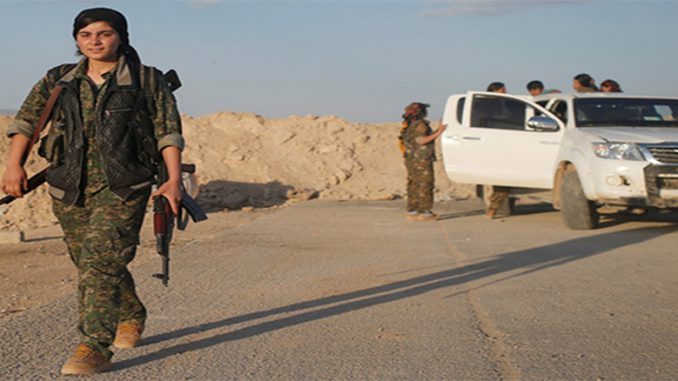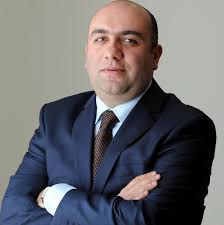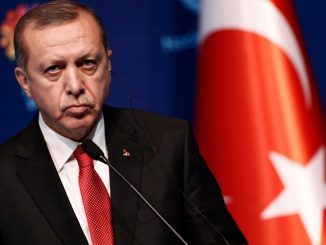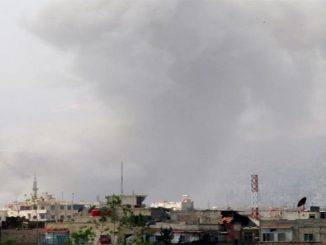
 BY: ÇETİNER ÇETİN*
BY: ÇETİNER ÇETİN*
Tens of simultaneous airstrikes by Turkish fighter jets on the Kurdistan Workers’ Party (PKK) positions in the northwestern Iraqi city of Sinjar (Shingal) and the People’s Protection Units (YPG) positions in northwestern Syria recently, has been a surprise for many regional and international parties and created a new state of balance.
Under normal conditions, an air campaign on this scale should have been conducted in coordination with both the U.S.-led international coalition and Russia whose fighter jets and missiles are active in the Syrian airspace. So, Turkey should have won the consent of the U.S. and Russia in such a tense and complex environment. However, it made do with informing the two countries. This is because the PKK has been shaking its finger at Erbil for the past two years, threatens Turkey and has created a position in the region with Iran’s support – all of which has been the limit.
Turkish officials previously announced that the finalization of the Operation Euphrates Shield, which had been conducted many times in the north of Syria, would result in new operations. In other words, the war that the Turkish army launched against the PKK in Turkey and its branches in Iraq and Syria, mainly Sinjar, would not end with the finalization of this operation. Turkey considered the PKK’s control of Sinjar as an event that subverted political and demographic equations and threatened not only the Turkish government but also the Kurdistan Regional Government (KRG). Turkish politicians have clearly voiced this in the last 17 months.
While the PKK’s presence in Sinjar posed serious problems for Turkey’s national security, the use of Sinjar for Iran’s logistical transitions by means of the PKK has grown into a rather disturbing dimension both for the KRG and Turkey which supports the Syrian opposition. Particularly, the transition of Hashd al-Shaabi militants to the region with the help of the PKK for the Tal Afar operation has further increased the regional tension.
This move by the PKK left the KRG administration in the lurch, so much so that former Iraqi Prime Minister Nouri al-Maliki attempted to crack down on Kurds with the armed Shiite groups which he created under the name of the Tigris Operation Unit. At that time, Al Maliki degraded himself as much as to say that “If I had had aircrafts, I would have expelled Kurds behind the mountains,” in a move of Saddamization. Since al Maliki stepped back, the PKK has served as a border guard for Iraqi Prime Minister Haider al Abadi with the help of Iran by not leaving Sinjar to the KRG.
It is necessary to make a note of the fact that Iran allowed the PKK to wave the flag on the Sinjar –Tal Afar – Mosul – Kirkuk – Hanekin line in an attempt to create a rival against KRG President Masoud Barzani’s legitimacy, and enabled militant groups like Hashd al-Shaabi to use it as a base of transition to Syria.
Article 140 of the Iraqi Constitution decided that Sinjar would determine its own fate through a referendum like Kirkuk and Hanekin. However, the PKK did all what it could in order to leave the KRG administration in the lurch, such as opening an office in Kirkuk and forcibly taking Sinjar under control – arousing the reaction of Yazidis, the old people of Sinjar.
Turkey’s airstrikes on the PKK and its subsidiaries in Syria and Iraq revealed the extent of the division among Kurds and the fact that the PKK gave the future of Kurds to Iran as a pledge. This left the U.S. in a tight spot as they considered Kurds a part of their strategy of destroying Daesh.
The Barzani leadership blamed the PKK for this and requested it to withdraw from Sinjar. Meanwhile, U.S. military authorities visited the targeted YPG center in Haseki. This step could not be understood in a clear way, whether it meant that the U.S. would continue to hold on to the alliance with the PKK in the fight against Daesh especially in the upcoming Raqqa war.
What about Turkey?
This surprising air campaign is based on the fact that the U.S.-led international coalition’s policies must fully rely on the PKK branches in Syria. As a matter of fact, Turkey does not like this situation and thinks it is an American conspiracy against itself. However, it had hoped that this would change under new U.S. President Donald Trump’s administration. In fact, Trump replaced all the bureaucrats in diplomacy, but the bureaucrats who were in charge of Syria policies during the Obama era are still in office. This status quo does not give a very positive answer to the question of whether there will be a major change in Syrian politics.
Some incidents in reality are supporting this idea. The most important one of them is the fact that Turkish President Recep Tayyip Erdoğan holds the power mechanisms and that the West’s power to influence the Turks’ decision has declined. Also, it should be underlined that Washington faces serious challenges in many parts of the world and Europe faces the danger of division in the face of the radical right which receives support from Russia. The EU’s leftist leaders have been trying to ensure a balance by developing a radical discourse to overcome the crisis, while German Chancellor Angela Merkel, who is from eastern Germany, met with Putin, who served as a spy in east Berlin for many years, and chatted in Russian.
It was very significant that Turkey’s April 16 referendum on the presidential system was supported by the U.S. and Russia. Despite this, it is hard to imagine what is happening is the new U.S. policy, although Trump had emphasized that the U.S. supported the fight against the PKK in a phone conversation with Erdoğan days ago.
Likewise, it is difficult to predict how the military command of the international coalition in Syria and Iraq, which always advocates a policy of cooperating with the PKK, will meet this trend.
Likewise, it is difficult to predict how the military command of the international coalition in Syria and Iraq, which always advocates a policy of cooperating with the PKK, will meet this trend.
It is indisputable that eliminating the Daesh terrorist organization is among the priorities of the Trump administration. However, the U.S. gives the PKK the task of liberating Raqqa from DAESH in shadow of Turkey’s political and military determination – which may be interpreted as the U.S. insisting on targeting Sunni Arabs. This may also introduce plans to change the demographic structure of the region.
(It should be noted here that Mr. Barzani has always criticized Sunni Arabs being kept away from the system despite all the pressures of the U.S. and Iran, although he received the heaviest blow from Sunni Arabs. And Mr. Barzani’s emphasis on not excluding Sunni Arabs before the Mosul operation should not be forgotten.)
Nechervan Barzani’s talks with Turkey
To be clear, it is unclear how long the contradictory process between Arbil and Baghdad will continue. That is precisely why KRG Prime Minister Nechervan Barzani is now forcing to take into account this uncertainty will make Kurds face very serious problems in the region. While fighting against Daesh continues, Baghdad has entered into a new process of change and it is unknown how much Baghdad could improve its ability to implement military, political or economic sanctions against Arbil in this process. On the other hand, despite the Daesh threat, there is no change in the U.S. approach on Iraq. Arbil’s plan to tear up ties with Baghdad is officially on the agenda of Baghdad, in
case Baghdad has the possibility of achieving a balance that can stabilize Erbil. There is a referendum process in September 2017.
The PKK is implementing all kinds of incitement to force Peshmerga to fight in Sinjar. It has even shaken its finger at them in a political way. On the other hand, Ankara is insisting on a joint operation in the region. However, Peshmerga troops have already been fighting Daesh on the 1,170-kilometer border since 2014. It is not guaranteed that Baghdad will have a counterstrike against Erbil and that Hashd al-Shaabi militants, which the PKK made enter the region, will not turn toward Erbil or Dohuk after Mosul. In such and environment, Nechervan Barzani met Erdoğan and elaborated on the military capacity and political process. In other words, Barzani said, “The PKK has exceeded there and its current state and attitude is beyond us,” conveying the message that he would keep silent on an operation without Peshmerga.
The PKK destroyed the faltering reconciliation process first in Ceylanpınar and then with its ditch politics. While operations are continuing at home, Erdoğan’s meeting with Trump on May 16 will be important in terms of regional equitation.
It is clear that the Syrian dimension of the PKK is getting more complex every day. On the one hand, Russia met with the PKK and Democratic Union Party (PYD) and decided to establish a second military base in Afrin. On the other hand, it seems together with the U.S. on the Kobane-Derik line. Also, it has a traditional and intricate relationship with Hashd al-Shaabi militants and Iran. While the U.S.’s policy on Iran has been modified, it is likely that the U.S. would force the PKK to make a preference. Here, the PKK’s Syrian wing and the PKK leadership in Qandil can be separated from each other.
Soon, we may face two PKKs hatching the same egg.
*Çetiner Çetin is a Turkish journalist. He wrote this article exclusively for the Middle East Observer



